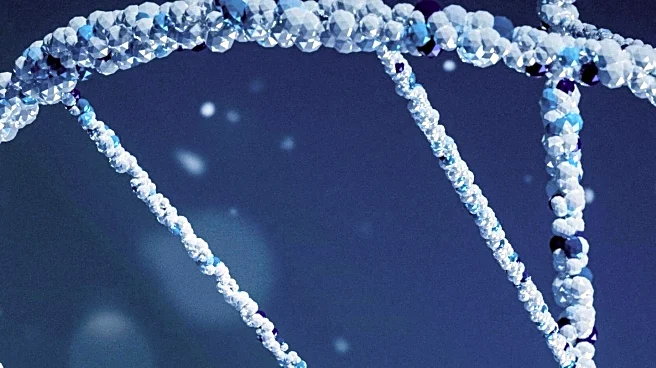What is the story about?
What's Happening?
Researchers from the University of Tokyo have discovered giant DNA elements, termed Inocles, in the human oral microbiome. These extrachromosomal DNA elements were found in saliva samples and are hosted by the bacteria Streptococcus salivarius. Inocles are significantly larger than typical plasmids, measuring around 350 kilobase pairs. They contain genes that may help bacteria adapt to the oral environment, including those related to oxidative stress resistance and DNA repair. The discovery was made possible through advanced long-read sequencing techniques, which allowed researchers to assemble complete Inocle genomes.
Why It's Important?
The discovery of Inocles provides new insights into the complexity of the human oral microbiome and its potential impact on health. Understanding how these DNA elements influence bacterial adaptation could lead to advancements in oral health research, particularly in relation to conditions like gum disease and cavities. Additionally, the presence of Inocles in a significant portion of the human population suggests they may play a role in broader health issues, including cancer. This research highlights the importance of exploring the microbiome to uncover hidden elements that could have significant implications for human health and disease prevention.
What's Next?
The research team plans to develop methods for culturing bacteria containing Inocles to study their functions and potential transmission between individuals. Further investigations will focus on the role of Inocles in oral health conditions and their possible connection to serious diseases. Researchers will use laboratory experiments and computational simulations to characterize the unstudied genes within Inocles. This ongoing research could lead to new diagnostic markers for diseases and inform strategies for managing oral health.
Beyond the Headlines
The discovery of Inocles underscores the potential for significant findings within the human microbiome that remain unexplored due to technological limitations. As sequencing technologies advance, researchers may uncover additional extrachromosomal elements with implications for health and disease. This research also raises questions about the ethical considerations of manipulating the microbiome for therapeutic purposes, highlighting the need for careful evaluation of potential risks and benefits.















